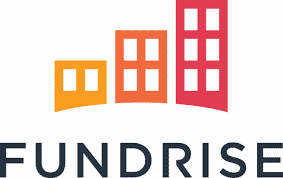FREE TRAINING
What is Real Estate Crowdfunding?
Learn how to build wealth and earn passive income in real estate while someone else does all the work.
204 Ben Miller, Co-Founder, CEO Fundrise

Ben Miller, Fundrise

Related Article: What is a REIT?
The First ‘Mini IPO’ and Regulation A+ Origins
It was from a background of being a real estate sponsor, being an operator and having to raise money that the idea of Fundrise was born. Prior to the 2007/2008 downturn, Miller was raising capital from private equity and insurance fund partners, and in 2008 one of his big financial partners, with some $250 billion in assets, went bankrupt. Coming out of the 2008 recession feeling like there had to be a better way, Miller founded Fundrise with the idea that utilizing JOBS Act Regulations he could raise capital online and not be dependent on the institutional players.
Miller’s work and insights as to why this methodology could be effective predates the JOBS Act by two years. Together with his partners, he conceived of the idea of raising equity capital online as early as September 2010 and first approached the SEC in 2011 to propose that they permit it.
Before Regulation A was reformed to become Regulation A+, Miller worked with a former general counsel the SEC to figure out a way of raising money for a real estate deal at $100 a share; a process which paved the way to informing the SEC that the idea generally it worked. Initially, it was very difficult to navigate through the SEC because, while these things are now taken for granted, they had not previously been contemplated. Questions that had to be answered included, how does somebody buy a security online, what forms do they fill out, how is SEC staff expected to oversee the applications, what kind of language has to be used? Working with the SEC to take, what was effectively the first online deal through the system, Miller and his team created the initial protocols for what was eventually to become Regulation A+.
It was a painfully slow process and essentially the deal was like a mini-IPO . They raised $320,000 at $100 a share a year and it took them almost two years to put all the components together. In the beginning it was very intensive and slow going but in time they were able to spin it off and scale it, and eventually it became Fundrise – the first company in the industry to be a real estate Crowdfunding platform.
Leaders of The Crowd
Conversations with Crowdfunding Visionaries and How Real Estate Stole the Show
Discover how laws that gave us crowdfunding were solely meant to finance small companies and yet inadvertently opened the doors to allow you to invest in real estate like never before.
Read the book and listen to the actual conversations.
JOBS Act Geared to Tech Companies
Miller’s team concluded just one deal in two years working with the SEC – and this was after they had already bought the real estate. But the deal they worked on was just five six blocks from the SEC's headquarters. The helped, not only the process in some way, but by making it easy for SEC staff to actually see the deal first hand, they became intimately familiar with the concept as a tangible case study. Consequently, the issues were real and immediately apparent to all and this helped to illustrate the concept and flesh out the solutions.
While the first deal took nearly two years to complete, now Fundrise is trying to close a real estate deal a week. Scaling became possible because Congress and the SEC and the President [Obama] recognized this as an opportunity to innovate. And they did. That said, the JOBS Act was oriented primarily to tech companies and the benefits that have accrued to real estate have been, in a way, accidental yet becoming increasingly influential.
How to Fund Your Deals
7 Steps to Raising Equity Online
Why CrowdFunding Real Estate Works
Looking back at e-Commerce in 1999 everybody thought it was going to change the world and then, when it blew up in the early 2000’s everybody came to think it was overblown and not likely to do anything, or have any kind of major impact on the economy or society. The same is likely true of the crowdfunding space; in the beginning it is having this tremendous impact on the way deals are being financed and, those getting involved are evangelizing future transformational changes. The next downturn will cause people to turn off the idea, and then it will re-emerge to dominate how capital is formed in real estate.
It is similar to the way that people thought about e-commerce in 2001 when the bubble burst. The market predicted that Amazon could not have that big an impact and their shares dropped 94 percent to around $7 a share – trading today at over $1,000 a share. What makes the impact of crowdfunding so difficult to contemplate, is that lots of things, especially in the modern era where you have technology in particular, are non-linear. That is the nature of a lot of technology. People tend to underestimate growth rates and the growth in crowdfunding will likely surprise everybody. Looking out 20 years, it is not inconceivable that all fund raising, all investing, will be, in a way, a form of crowdfunding.
Deal Aggregation
Fundrise has taken to aggregating deals and offering different return profiles and different risk profiles to investors through debt platforms with different characteristics, rather than offering individual equity deals, one by one. In Miller’s eyes, equity investments do not make sense unless you are in a pool vehicle. Investing in a single deal, say an office building, and crowdfunding it is a disaster waiting to happen. In every deal Miller has been involved in – and this is commonplace across the real estate industry – there is always the need for more capital than originally budgeted. In each case, Miller has made zero percent loans personally. Once you pool these kinds of deals, there are more sources of capital, more diversification, and better cash flow streams. In short, in a pool there are more ways that you know you can borrow against it if need be.
The Liquidity Premium
But buying into a REIT is not a prudent move for most investors interested in diversifying into real estate. A share of a public REIT is really just a piece of paper that is a secondary trade. The derivative that is a public REIT is so separate, so different, from the real estate itself it that it does not act like the same asset. In fact, buying a public REIT, the investor is paying at least a 20 to 30 percent premium over the real estate. Consider this: In a public context, buying into a public REIT, you are getting daily liquidity, a wholly liquid asset. That liquidity is not free. The building underpinning the share in the REIT is not liquid. It is not possible to pay the same price for a building that is illiquid and a piece of paper that is liquid. What do investors pay to make an illiquid asset, liquid? Whatever that is is the liquidity premium. The transaction costs on a piece of paper is almost zero, but the cost to sell a building is much higher than the cost to sell a piece of paper. This begs the question, if you are going to buy something and hold it for in retirement or for 5, 7 years i.e. if you are a buy and hold investor, why buy a REIT and pay a liquidity premium for something you have no need for liquidity on?
Eliminating the Liquidity Premium on Fundrise
If you invest a dollar on the Fundrise platform, that dollar goes directly into buying a property. Because Fundrise is closing on real estate transactions on a continuous basis, the process is happening very close to real time. Investors demand certain return profiles, and so Fundrise creates buckets of deals that match the profiles investors are looking for. Ninety nine percent of the population do not know whether, in any particular deal, they would be better off doing mezzanine as an investment in, say, a particular apartment deal, or JV equity, or a whole loan doing 100 percent of stack. What is the right way to do it in this deal in this geography with this real estate operating partner? Fundrise makes these calls navigating based on investor goals.
Quicker to Raise Capital
Prior to the JOBS Act, if you wanted to raise capital, you had to go have coffee and lunch and meetings to raise the money, and to go on a road show for your institutional investors. Or you could go to the country club. A lot of time spent for a normal developer would be consumed just raising capital and it could take on average 15 months to raise a fund.
At Fundrise they do it in days.
Fundrise is Not Institutional
Although Fundrise is beginning to act as institutional investors or private equity funds, they are more efficient because they are acting online with tens of thousands of investors rather than over lunch and golf. And there is also a cultural difference. Generally the financial industry maintains margins. There is not a culture of competing to lower fees among financial industry players. Instead, while fees have remained constant for decades, more or less, an issuer will be sold on other benefits.
That is not the culture of tech where there is a relentless drive for change. They are not motivated to because their institutional clients don't necessarily find it attractive.
The Fundrise Model
The company takes a 0.85 percent as a management fee, instead of 1.5% to 2% as is typical with a private equity fund. They also take an origination fee of 1% to 2% on the close, which is amortized over the normal life of the deal, say five years. So Fundrise’s total fees total around 1.25% a year, which is a flat fee. And they take no carried interest.
Carried interest, Miller says, is an incentive for developers to invest recklessly. The ‘natural’ rate of return on real estate is around 12%, but carried interest structures typically require far higher returns for everyone to be incentivized through their carried interests. In these structures, developers are like a car with only an accelerator because they have such an asymmetric reward system. You have to recognize that even the best of developers will behave in ways that they really should not if it were not for the incentives. And that is why this system blows up.
Fundrise as a Technology Solution
Fundrise basically functions as a marketplace where investors and developers come together to transact. The platform maintains a minimum level of quality where they do not pick winners or losers. That said, unlike the straight venture capital approach which is solely looking for patterns to disrupt, Fundrise has to blend these ideas, as a tech company, with expertise in real estate. In Miller’s words, Fundrise is both a tech company and a real estate company, it has ‘to have a spliced DNA.’
The Next Real Estate Downturn.
Most platforms will blow up unfortunately and Miller worries about how to protect his platform and their investors every day. During the next recession there will be a wave of opinion that the real estate crowdfunding idea categorically did not work. And then there will be a few models, a few companies, that will emerge from it proving that it did work. And by that point the industry will probably be 10 years old, with a billion of equity and three billion in real estate or more and will, basically, be institutional.
RELATED PODCASTS
310 Jon Carden, Head of Marketing, Fundrise
Last Updated on September 15, 2021 by Dr. Adam Gower WHITE BOARD WORKSHOP Need More Money to Finance Your Real Estate Projects? Learn how to find more investors, raise more…
READ MORE >344 Tiffany Tai, GM Enterprise and Head of BizOps at Canva
Last Updated on June 22, 2020 by Dr. Adam Gower WHITE BOARD WORKSHOP Need More Money to Finance Your Real Estate Projects? Learn how to find more investors, raise more…
READ MORE >400 David Meerman Scott, Marketing Strategist
Last Updated on September 15, 2021 by Dr. Adam Gower David Meerman Scott, Marketing Strategist Grow your CRE business with an effective digital marketing strategy NEW BOOK BY ADAM GOWER…
READ MORE >












